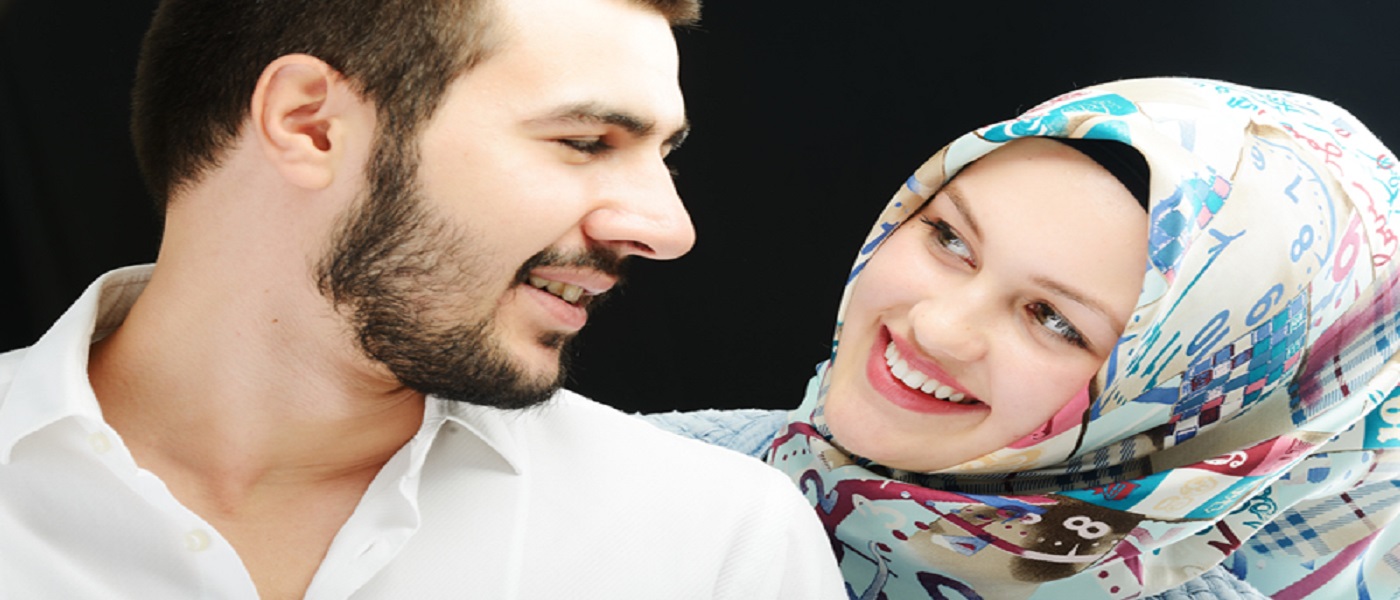

Is It Permitted to Marry a Transgender in Islam?
Transgender in islam and their marriage is one of the new issues of our era. It does not mean that at the time of Prophet (PBUH&HP) no one was hermaphrodite. But the science of changing the sex into male or female, or curing this disorder to some extent had not been known yet. Therefore there is no verse or narration regarding this issue.
But how do we find out if transgender marriage is allowed (Halal) or forbidden (Haram) according to Islamic jurisprudence?
Transsexuals and Hermaphrodites
People who are known to be transsexual (a person who emotionally and psychologically feels that they belong to the opposite sex) or hermaphrodite (a person having both male and female sex organs or other sexual characteristics) are different from those who decide to be homosexual (lesbian or gay). Nevertheless, some of those who have homosexual tendencies may suffer from hermaphrodite disorders as well.
But the improvement of science these days has made it possible for transsexuals and hermaphrodites to go through a sex reassignment surgery (SRS) in which they can change their gender into the one they feel they belong to(obviously according to the physician’s opinion).
Since not having the operation and changing the sex may cause the person to commit a sin, or personal and social damages, it would be best if they can go through a sex reassignment surgery (SRS) and reduce these harms.
The Pessimistic Look at Transsexuals and Hermaphrodites
While transsexuality and hermaphrodites are obvious to be human disorders, most sufferers experience hostile encounters in the society. It is important for the society, especially for Muslim communities, to become familiar with their issues and support them in a way that they can have a normal life alongside others.
One of the most offending manners towards them is to accuse them of having immoral sexual behaviors. It should be very well understood by the society that accusing them of adultery is a forbidden (Haram) act according to Islam. We should keep in mind that they are human beings with all the rights and needs of a human.
The only difference is that they suffer from a disease, which makes them even more vulnerable. Hence they need special support from the society; such as disability support services provided by the government.
Is Marrying a Transgender in Islam Forbidden (Haram)?
Since marriage, according to Islam and all the other Abrahamic religions is based on sexual differences, it is clearly false for a Muslim to marry a person with unknown gender. If a Man marries a transsexual with unknown gender, he cannot be sure if he has married a male or a female, therefore, that should become clear before marriage.
But if the sufferer has gone through the sex reassignment surgery (SRS) and the gender is now obvious, then there is no problem for a Muslim man or a Muslim woman to marry such a person under the Islamic rules of marriage.
However, they should both be aware that people who change their gender, will not be able to have children at all. (We hope that human knowledge can solve this issue in the near future). So, people who have had a sex reassignment surgery (SRS) should inform their “spouse to be” of their surgery and the consequences of the operation.
To conclude, we understand that marriage between or to a transgender -after the operation- is allowed (Halal) according to Islam and the couples may be able to shape a great family in which they feel comfort and relief. And if they wish to have children, they could always adopt a child which is strongly recommended in Islam.
Share This Article

Family in Islam
A family in Islam is not only a place for reproduction but also a site for growing the healthy spirit and character of human beings. To clarify this point, some principles are mentioned below which are derived from the verses of the Quran:
1. Having amity and mercy within the family and providing security and peace for each other. This verse refers to family and its spiritual relations: “And of His signs is that He created for you mates from your own selves that you may take comfort in them, and He ordained affection and mercy between you. There are indeed signs in that for a people who reflect” (30:21).
2. Consultation and satisfaction of the couple in decision making [1].
3. In verse 71 of Al-Tawbah, men and women are introduced as each other’s friends and helpmates. In these verses, the importance of consultation is notified, and it is also mentioned that the viewpoints of all the family members are of equal value and no one’s approach receives more importance than the other’s [2].
4. The importance of family interests over personal interests [3].
5. Improving affairs and seeking reconciliation [4].
6. Forgiving each other’s mistakes, establishing peace and amour, and avoiding egocentricity: “If a woman fears from her husband misconduct or desertion, there is no sin upon the couple if they reach a reconciliation between themselves; and reconcilement is better. The souls are prone to greed; but if you are virtuous and God wary, Allah is indeed well aware of what you do” (4:128).
7. Being good-tempered in etiquette and commerce: “deal kindly with them” (4:19).
The principles mentioned above indicate that the style Islam suggests for families is achievable through a true collaboration of all family members. Every family is a small part whose rectification contributes to the improvement of the whole society and consequently its perfection.

References:
- (2:233)
- (9:71, 28:26, 28, and 37:102,103)
- (2:229, 4:19)
- (8:1)
Read More

What are the Rights of Wife over Her Husband?
The women's rights in Islam include their right as wives in the marital relationship as well. In Islam, marriage is not confined to satisfying physical and emotional needs. There are many verses, stories, and narrations speaking about different aspects of marriage, including the mutual rights that the couple has over one another.
In this article, the rights of the wife over her husband have been summarized into the following two categories of financial and non-financial. It is noteworthy that this classification is embedded neither in the Quran nor the narrations and therefore, other classifications from other perspectives are also possible.
Financial Rights of Women as Wives
It is obligatory for a man to pay marriage portion (Sedaq) to his spouse as one of the most significant women's rights in Islam. The marriage portion is, by definition, a property which a husband gives his spouse upon marriage. This mandatory payment whether in the form of money or possession is upon husband until the time he fulfills it.
In due course, his wife has the right to either ask for or forgo it. In the case of forgoing, the husband is no longer required to fulfill this duty. Interestingly, in contrast with the idea which regards marriage portion as a price for a woman, a marriage without a fixed marriage portion is also correct [1].
But, how much should the marriage portion be? Islam has not specified the exact amount of the marriage portion. However, the amount of five hundred silver coins (Derham), which is equal to today’s $724.5 [i], fixed by the Prophet (PBUH&HP) for his wives and daughters is an encouraged model for Muslims. On account of this, it has been recommended that the marriage portion doesn’t exceed this fixed amount. Nevertheless, any amount of marriage portion that both parties agree upon is allowed by Islam [2].
Furthermore, a man is financially obligated to pay for the living expenses of his spouse (Nafaqah) including food, clothes, shelter, living necessities and the things that a wife usually needs in her life [3]. It makes no differences in this duty of the husband, whether his spouse earns money out of work or not, since she is not required to provide for the family [4].
As for the woman’s property, her husband also doesn’t have the right to take the outcome of her efforts into his possession [5]. Even if the wife asks wages for her works inside the house, the husband is supposed to pay, due to the Islamic laws [6]. God has underscored this supportive role of the men in the Quran as follows: “Men are the protectors and maintainers of women… (4:34)”
However, the man is responsible for arranging the comfort of his spouse as long as she does not disobey his legal demands [7]. Moreover, it makes no sense whatsoever to take the duty of providing the sustenance of the family as the sign of superiority of the man over his spouse [8].
When the husband dies his spouse inherits from him as well. According to the Islamic rules of inheritance, the woman is entitled to one-fourth of her spouse’s property in the case that he leaves no child as heir. But, if her spouse has any children, she is just entitled to one-eighth of her spouse’s property [9]. However, this topic in different cases includes some details which have been elaborated in the judicial sources.
Non-financial Women's Rights in Islam as Wives
The second type of women's rights in Islam concerns the moral rights of the wife. Our infallible Imams (A.S) reportedly advised their followers to be kind and respectful toward their wives and treat them gently. Prophet Muhammad (PBUH&HP) says: “The best of you are the ones who treat their family the best, and I am the best of you towards my family.” [10]
He, also, on various occasions recommended his companions to help their wives in the household chores and outlined many rewards for them regarding this act [11]. When some people inquired from him about the rights of a wife over her husband, he answered: “He should overlook her minor faults, and if she commits a major mistake then he should forgive her.” [12]
Imam Sajjad (A.S) has beautifully described women's rights in Islam and men’s moral duties toward their wives by demonstrating the blessings which God grants them through marriage: “The right of your wife is that you know that God has made her a repose and comfort for you; you should know that she is God’s favor towards you, so you should honor her and treat her gently.”[12]
Notes:
[i] This amount has been calculated based on the price of silver on 11th of November 2016. It may need further modification in future.
References:
- Islamic View on Human Rights: Viewpoints of Iranian Scholar.
- wifes right
- Ali Ibn Hussein Zaynul Abidin, A commentary on Imam Sajjad’s “The Treaties of Rights,” translated by Ali Peiravi, Ansariyan Publication.
- Islamic View on Human Rights: Viewpoints of Iranian Scholar; this book is available at https://www.al-islam.org/.
- Makarem Shirazi, Naser, 180 Questions Enquiries about Islam, translated by Shahnawaz Mahdavi, vol. 1.
- Khorasani, Hussein Vahid, Islamic Laws, Create Space Independent Publishing, 2014, p. 393.
- Hussein, Jamila, Islam, Federation Press, 2011, p. 109.
- Kamrava, Mehran, The New Voice of Islam: Rethinking Politic and Modernity: a Reader, University of California, 2006, p. 163.
- Shabir Khan, Muhammad, Status of Women in Islam, APH Publishing, 1996, p. 50.
- Ali Ibn Hussein Zaynul Abidin, A commentary on Imam Sajjad’s “The Treaties of Rights”, translated by Ali Peiravi, Ansariyan Publication.
- Javadi Amoli, Abdollah, Mafatih al-Hayat, Asra, 2012, p. 257.
- Rizvi, Athar Hussein, Islamic Marriage, World Islamic Network.
- Ali Ibn Hussein Zaynul Abidin, As-Sahifa Al-Kamilah Al-Sajjadiyya, Muhammadi Trust of Great Britain and Northern Ireland.
Read More

